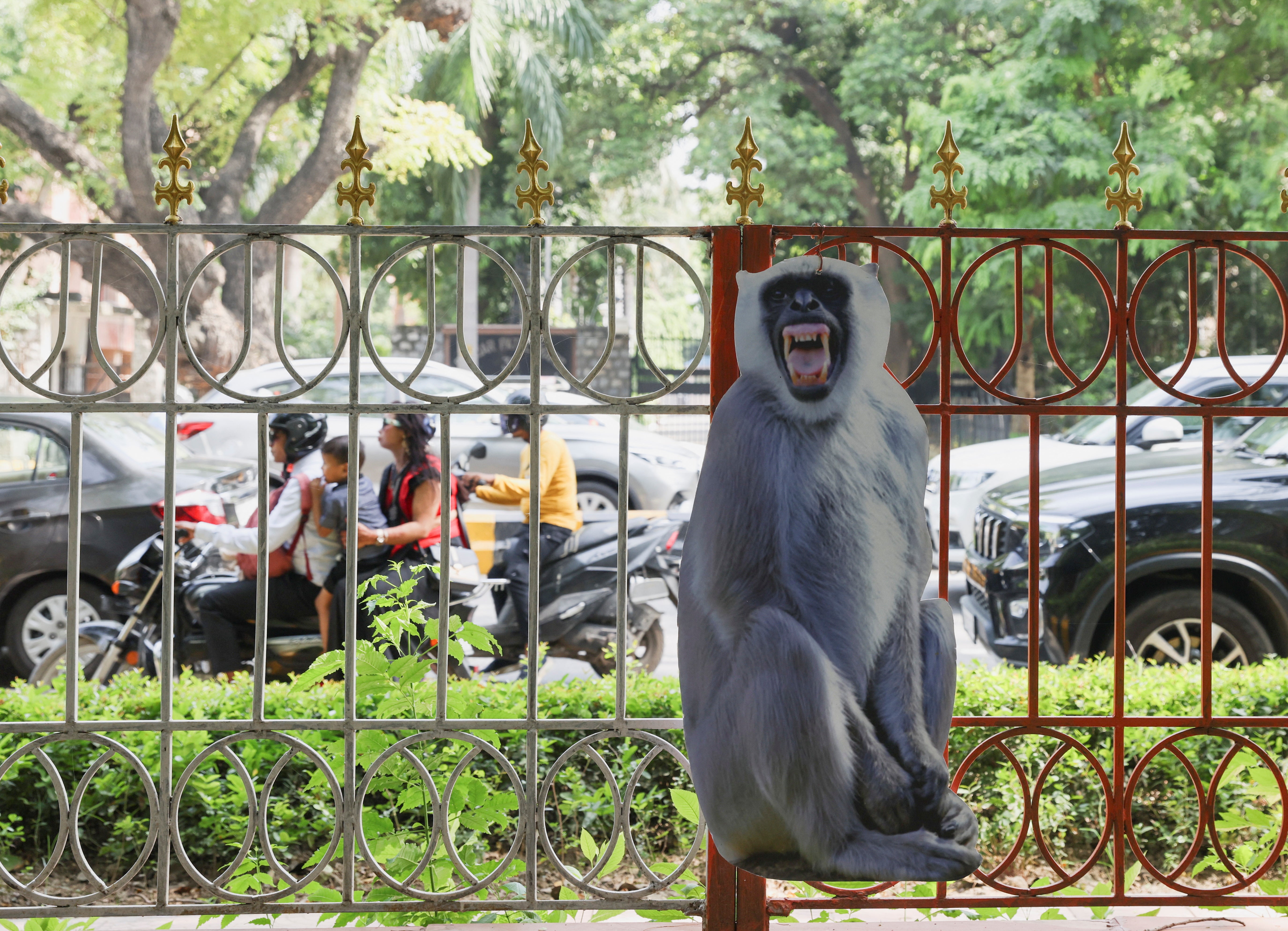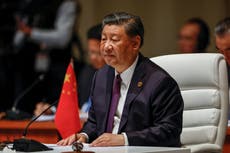India tries to scare off monkeys as it gets Delhi ready for G20 leaders’ arrival
With cut-outs of larger langur primates and trained ‘monkey men’, Delhi gets innovative in fighting city’s monkey problem

Officials in India's capital Delhi are deploying trained “monkey men” impersonators and cut-outs of larger primates in an effort to drive away troops of rhesus macaques from its G20 summit venue.
New Delhi is home to tens of thousands of macaques which roam throughout the city including government offices and the parliamentary estate, despite the best efforts of the authorities over the years.
And renewed efforts are being made to tackle the monkey menace, with the city poised to host world leaders including US president Joe Biden, Chinese leader Xi Jinping, French president Emmanuel Macron and Canada’s Justin Trudeau for the G20 on 9 and 10 September.
The federal government has left no stone unturned in the beautification of the capital, which is home to around 30 million people, including the removal of stray dogs from the streets in areas where delegates will be staying, and hoardings erected to obscure the view of poorer neighbourhoods.
To keep monkeys away, the New Delhi Municipal Council (NDMC) has hired more than 30 trained "monkey men" proficient in mimicking the hoots of grey langur monkeys, which are larger than macaques and compete with them for territory in the wild.
"We can't remove the monkeys from their natural habitat, so we have deployed a team of 30-40 men who are trained to scare away monkeys," Satish Upadhyay, the vice-chairman of NDMC told AFP.
"We will deploy one man each at the hotels where the delegates would be staying, as well as in places where monkey sightings have been reported."
Rhesus macaques largely coexist peacefully with humans in Delhi but can be aggressive if they feel threatened or when competing for food. The monkeys have also destroyed plants and flowers that were planted for the city's facelift ahead of the summit, Mr Upadhyay said.
Large langur cut-outs were also being placed in heavily monkey-infested central parts of the city. The cut-outs will be moved from time to time to outsmart the monkeys, civil officials said.

"The cutouts of langurs have been installed at the boundary wall of Central Ridge (Delhi’s largest protected forest) along Sardar Patel Marg. They will be moved regularly so that the monkeys feel that real langurs are around," theTimes of India quoted a civil official as saying.
Arrangements were also being made to provide fruits and vegetables at identified locations on the Ridge to discourage monkeys from venturing out into the human settlements.
Delhi's streets were once patrolled by men with trained langurs, but that practice ended when a court ruled that keeping them in captivity was cruel.
As well as tackling the monkey issue, the civil authorities had initially decided to sterilise and hide thousands of stray dogs roaming around central parts of the city, as well as at popular tourist spots, before the summit. However, the policy was later withdrawn following a public outcry.

The dogs are, however, being relocated temporarily to other parts of the city, according to reports.
Authorities have also cleared illegal slums near summit venues and revamped major arterial routes on the city's gridlocked roads.
Some larger slums and more crowded neighbourhoods were covered by placing tin shades along the roads, leading to outrage among small-scale shopkeepers and locals.
Mohammad Salim, a 45-year-old shopkeeper, rued that he stopped receiving customers at his milk shop after it was hidden behind metal grilles.
“These slums have been here for a long time but the tin shades were not. Now, they have built this wall and are starting to cover it with green shades so that it is not visible to the officers who come for G20. They’re trying to hide the poor who live here,” he told the Indian Express.
Delhi’s chief minister Arvind Kejriwal has announced a public holiday from 8-10 September, directing all government, municipal corporation, private offices and schools to remain shut.
Join our commenting forum
Join thought-provoking conversations, follow other Independent readers and see their replies
Comments


Bookmark popover
Removed from bookmarks